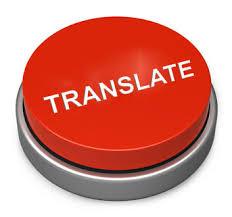How to master Arabic English translation?
For a multitude of reasons, there is a great need in today’s world for the translation of texts (whatever the type of the document) written in Arabic to English or vice versa.
These could be financial, business, cultural, legal or a whole range of different other reasons.
The question is how to deliver the best translation of an English-language document or text into Arabic or vice versa.
Translation is a learned skill, accumulated experience and a highly complicated art which – mistakenly - many people claim they have mastered while in fact only very few – extremely few – are able to deliver just a decent translation job.
Genuinely professional and 100% expert translators of Arabic to English and English to Arabic are rare.
In this article, we aim to help those who have embarked upon this career and would like to develop themselves into professional and expert translators.
Swim as much as you can
Imagine translation as a swimming pool. It is where you learn and where you practise and also where you become a professional swimmer over time.
If you want to be a professional translator, immerse yourself in translation. Practise as many translations as possible. If you have already been in the business for some time, it is time you took a step further towards translating more difficult and more complicated texts. Do not confine yourself within a certain specialism that you prefer (although having a specialism is a good idea). But translation of an Arabic text to English in any field or area would likely need knowledge related to another field. It cannot be 100% mutually exclusive.
To translate a business document, you will most likely need to have a good idea about legal or even medical matters. Translating an advertisement for a new law firm or a medical product will require you to have knowledge about these fields.
So, broaden your translation skill. If you have always confined yourself to a certain field or topic, start with translating a small and relatively easy text in another field and take it gradually. Start with a small Arabic text and translate it and then move up a bit by bit until you develop a good vocabulary about the new field.
Dedicate as much as time as possible to practising translations in a variety of field. Take a small English text from a news website about any field that you have not been across and have a go at it and keep doing this. With time, you will start to see the benefits of branching out and practising translations in a multitude of fields.
The more you swim in the sea of translation, the better you will be at swimming. More is better, less is worse.
Do not be like a lame duck. Practise translation in the two ways: from Arabic to English and English to Arabic.
How many an Arabic translator in today’s world are literally like a lame duck.
They can only translate either from English to Arabic or Arabic to English (the latter is more).
Get a more experienced translator
As stated previously, translation is a learned skill. If you are translating a text from Arabic to English, try to find a professional and reliable translator who is good at translating documents written in Arabic to English and get them to correct your translation.
Ask them for feedback, specifically on your points of weakness. Ask them what you did well and what you needed to work on more.
The more the specific the feedback, the more useful and better the result will be for you. It is this feedback from a professional and more experienced translator that will probably be of the greatest help to you to grow and develop into a genuinely professional Arabic translator.
Having a more experienced translator to go through your translation and correct it is utterly important. It is exactly like a parent teaching their baby to walk or talk.
The more learning and feedback you get from people more experienced than you the better. It will all add up one day, and you will feel your eyes are being opened to something you never knew.
Learning the art of translation from Arabic to English or vice versa is essentially dependent on learning from someone with accumulated experience and great knowledge.
Exposure
Do not translate in a silo. Try to be across and involved in areas related to translation as much as you can.
Subscribe to forms concerned with translation, apply for any free membership of society of Arabic-English translators.
Talk to fellow translators about translation matters or problems. Discuss it such things at conversations and always make sure you learn as much as possible.
Learning the tricks of Arabic to English translation or vice versa takes a lot of time, efforts, planning and good thinking.
